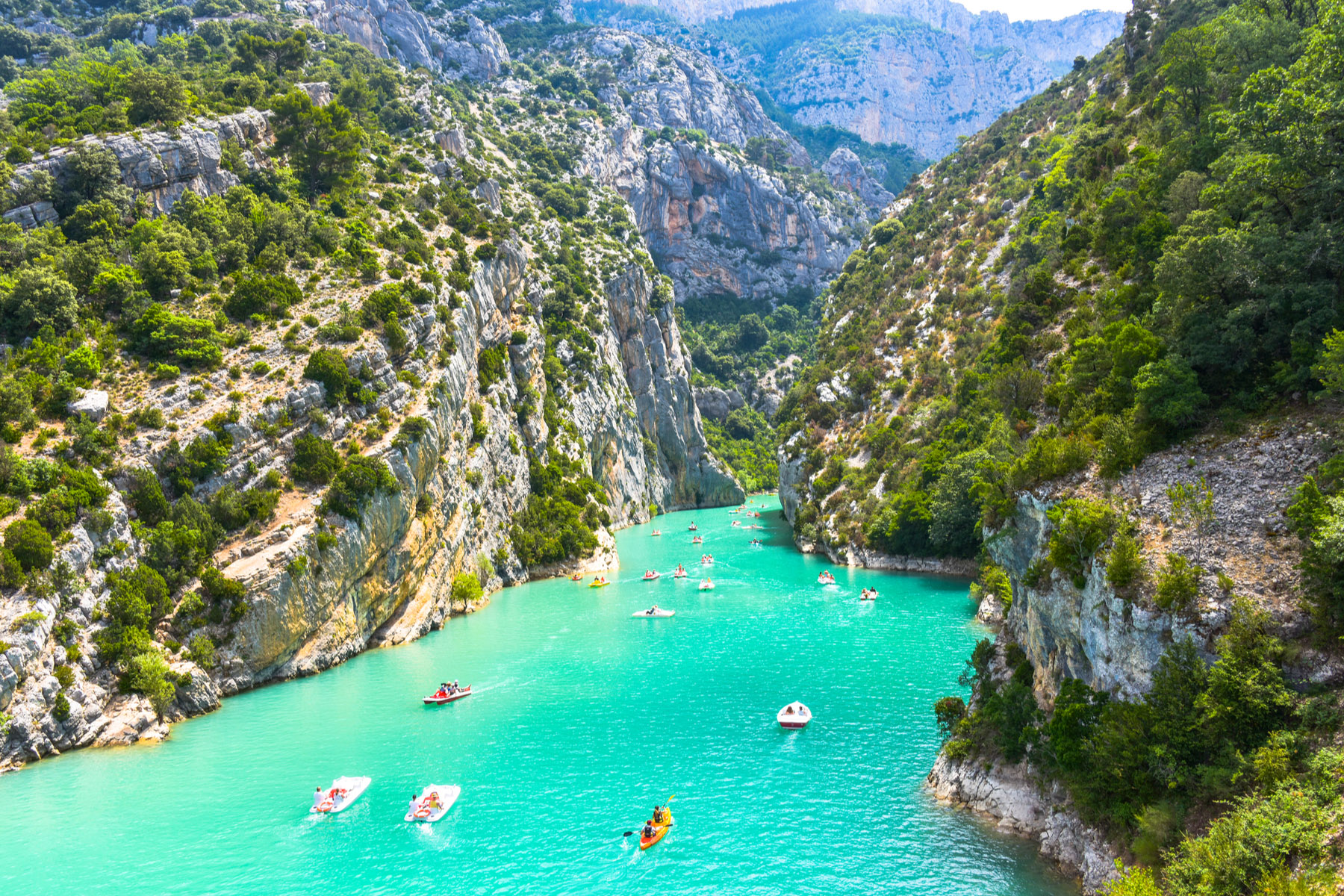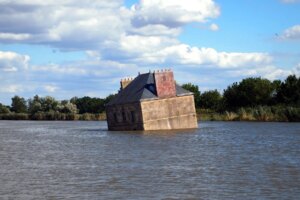If you’re moving to France, one of the first things you’ll want to do is set up your utilities in your new home. This includes getting connected to electricity, gas, and water. You’ll probably also want to set up your home phone, internet, and TV in France, too.
Thankfully for expats in France, setting up your French utilities is fairly straightforward. Whether you’re buying, renting, or short-term letting, there are plenty of providers to choose from. This allows you to pick the supplier and tariff that best suits your needs. To help you get connected, this guide provides information on the following:
Engie
Engie is a utility provider operating in France. They offer a number of energy options for homes and businesses across the country, including electricity, gas, and green energy. If you're setting up home in France, get connected today with Engie.
An overview of French utilities
Historically, both electricity and gas markets in France were dominated by two formerly state-owned suppliers: EDF (Electricité de France) and Engie (formerly known as GDF, or Gaz de France). However, following pressure from the EU, France liberalized its energy market in 2007. This means consumers are now free to choose their energy provider.
Despite this liberalization, EDF and Engie still largely dominate the energy market in France. However, that shouldn’t stop you from shopping around for the best energy deal from the ever-growing number of French suppliers. Most providers, including EDF and Engie, supply both gas and electricity and offer discounts should you take out both services at the same time.
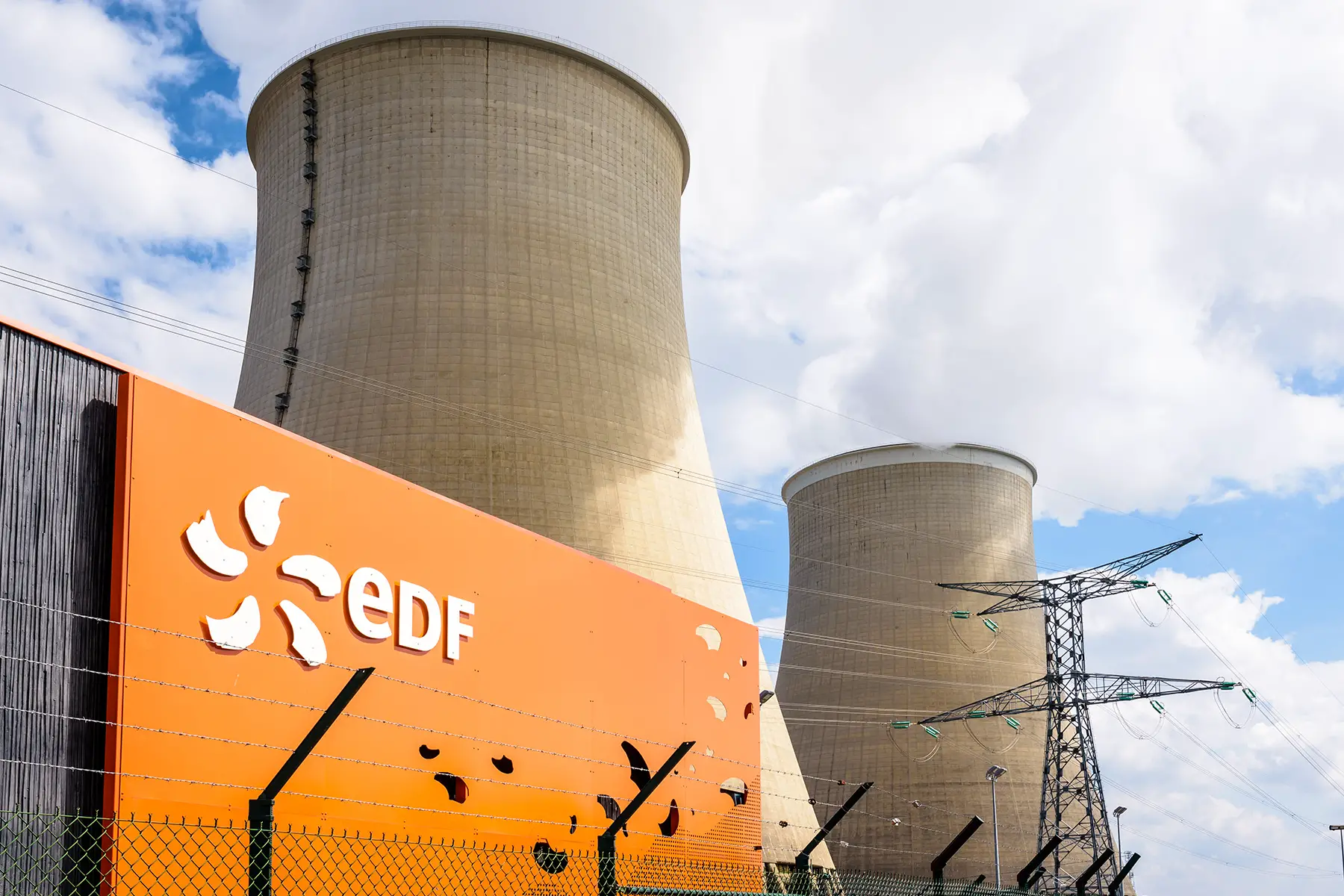
Many energy suppliers also provide green energy options for customers, powered mostly by solar, wind, and hydroelectric sources. Generally speaking, the vast majority (around 70%) of France’s electricity comes from nuclear power. This may be something to bear in mind when choosing your energy supplier.
When it comes to water, you typically won’t be able to choose a provider in France. That’s because supply is provided by local councils at a district level, who then sign a contract with a larger water supplier. In some more rural areas, several local councils will work together to provide water for their residents. To find out more about your local water provider in France, speak to your local council.
Getting connected in a new home
It doesn’t matter whether you’ve just arrived in France or you’re simply moving into a new French home, setting up your utilities is probably high up on your to-do list.
If you’re buying a new French home, it might be possible to get the existing utility services transferred into your name from the previous owner. To do this, you will need to arrange a meter reading with the previous owner and will also likely need to send a joint letter to your supplier to ensure the switch happens smoothly and you aren’t left without power in your new home. You can then change providers at a later date, should you wish.
If you’re renting a French property, your new home may well already have utilities set up by the landlord. If this is the case, the cost for these connections will probably be included in your monthly payments. However, be sure to ascertain what exactly you are paying for and liable for before moving into any property. Your landlord may allow you to change providers, or they may not. If utilities aren’t included in the rent, you’ll be able to transfer the existing utilities into your name or sign up with a different supplier.
If you live in a serviced apartment, your utilities will probably be included as standard. Should you be planning a long-term rent, you may be able to find a cheaper deal yourself. However, changing providers may not be worth your while if you’re only staying short term. For more information, read our guide to renting in France.
Setting up electricity and gas in France
Electricity is the most popular source of power for French homes, thanks in part to the relatively cheap electricity costs in the country. Gas is also an option in most homes throughout the country, however, this will largely depend on where you live. Most energy providers in France provide both electricity and gas, should you want both.
What you end up paying for your energy in France will largely depend on the supplier and tariff you choose. Some providers will offer green energy tariffs, while others will have particular deals and discounts available. This means it pays to shop around when setting up your utilities to ensure you have the right supplier for you.
The former state-owned operators, EDF and Engie, also offer regulated tariffs (tarifs réglementés) alongside their standard market offer rates (prix de marché). No other providers in the French energy market offer regulated tariffs. The French government regulates these tariffs and they are subject to annual price changes. However, they might not necessarily be the cheapest option when it comes to choosing your contract. The best option for you will mostly depend on your usage, so be sure to do your research.
Green energy in France
For many expats, making their new life in the French sun as green as possible is an important part of moving abroad. If you’re looking to live sustainably in France, a good place to start is by signing up for green energy. Many suppliers offer this, including OHM Énergie.
However, green energy production in France has lagged behind other European countries due to the country’s dependence on nuclear power. That said, you do have green options from the largest suppliers in France. Furthermore, you can even take advantage of all that French sun and install your own solar panels.
French energy suppliers
There are a growing number of energy suppliers in France, each offering a range of energy options and tariffs. Due to their legacy of being the state-owned suppliers, EDF and Engie remain the most prevalent providers across the country. However, more and more French residents are choosing to have their utilities supplied by newer entrants into the energy market.
French utility companies providing gas and electricity include the following:
- Alterna
- Cdiscount Energie
- EDF
- Engie
- Planète Oui
- Total Direct Energie
- TotalEnergies
Choosing a French energy provider
Choosing the right French energy supplier and tariff can be challenging for expats in France. However, to ensure you choose the right energy supply for you, make sure you consider the following issues:
- Type of energy: Do you want electricity or gas? Or maybe a mixture of both? Be aware that mains gas may not be available in some rural areas, so this may influence your decision.
- Energy source: Most French electricity is sourced from nuclear power stations, however, a growing number of suppliers offer green options from renewable sources.
- Regulated tariff or market price: Only EDF and Engie offer tariffs regulated by the French government. However, depending on your usage, these might not necessarily be the cheapest options.
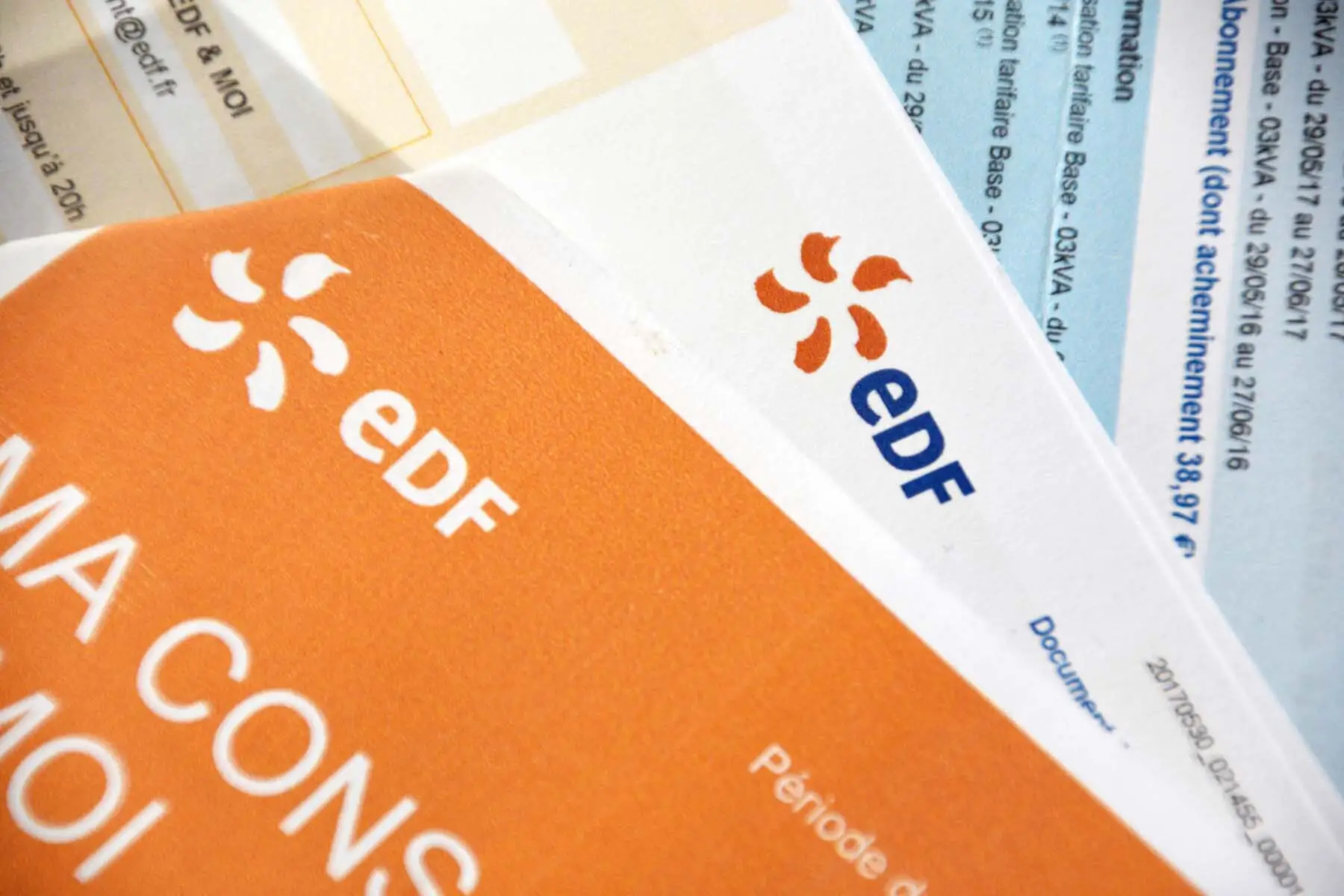
- Pricing options: If you choose a market price tariff, you’ll need to pick a pricing option. You can choose from a fixed-rate plan (the price is guaranteed for a certain period) or an indexed plan (price is linked to any changes in the regulated tariffs).
- Type of tariff: Next, you’ll need to choose the type of tariff: base (same rate all day throughout the year), off-peak (special rates in evenings and weekends), or tempo (rates vary through the year).
- Power capacity: And there’s more. In France, you can choose the power capacity (puissance du compteur) that enters your home. The higher the puissance, the more you’ll have to pay. Your supplier can help you get the right capacity for your usage.
Thankfully, these days there are a number of easy ways to compare French energy providers. Comparison sites will help you search by several different factors, including the ones mentioned above. Some comparison platforms also offer exclusive deals should you use their site to sign up for a contract.
Connecting your energy supply in France
Once you’ve finally navigated your way through choosing a French energy provider and tariff, it’s time to get your home connected. Setting up an account with an energy supplier is fairly straightforward and you can often do this online or over the telephone.
To sign up for a French energy provider, you’ll need to provide the following information to your utility company:
- proof of identity (passport, residence permit)
- proof of address (justificatif de domicile)
- French bank account details
- contact information of the previous occupant (if possible)
Whenever you move into a new property, it’s essential you make a note of the meter readings on your first day in your home. This will ensure you only pay for your usage. It can also help bring down the cost of your bills. If you’re transferring your connection from the previous occupant, you might want to arrange this meter reading with them to ensure you aren’t left without power during your first few days.
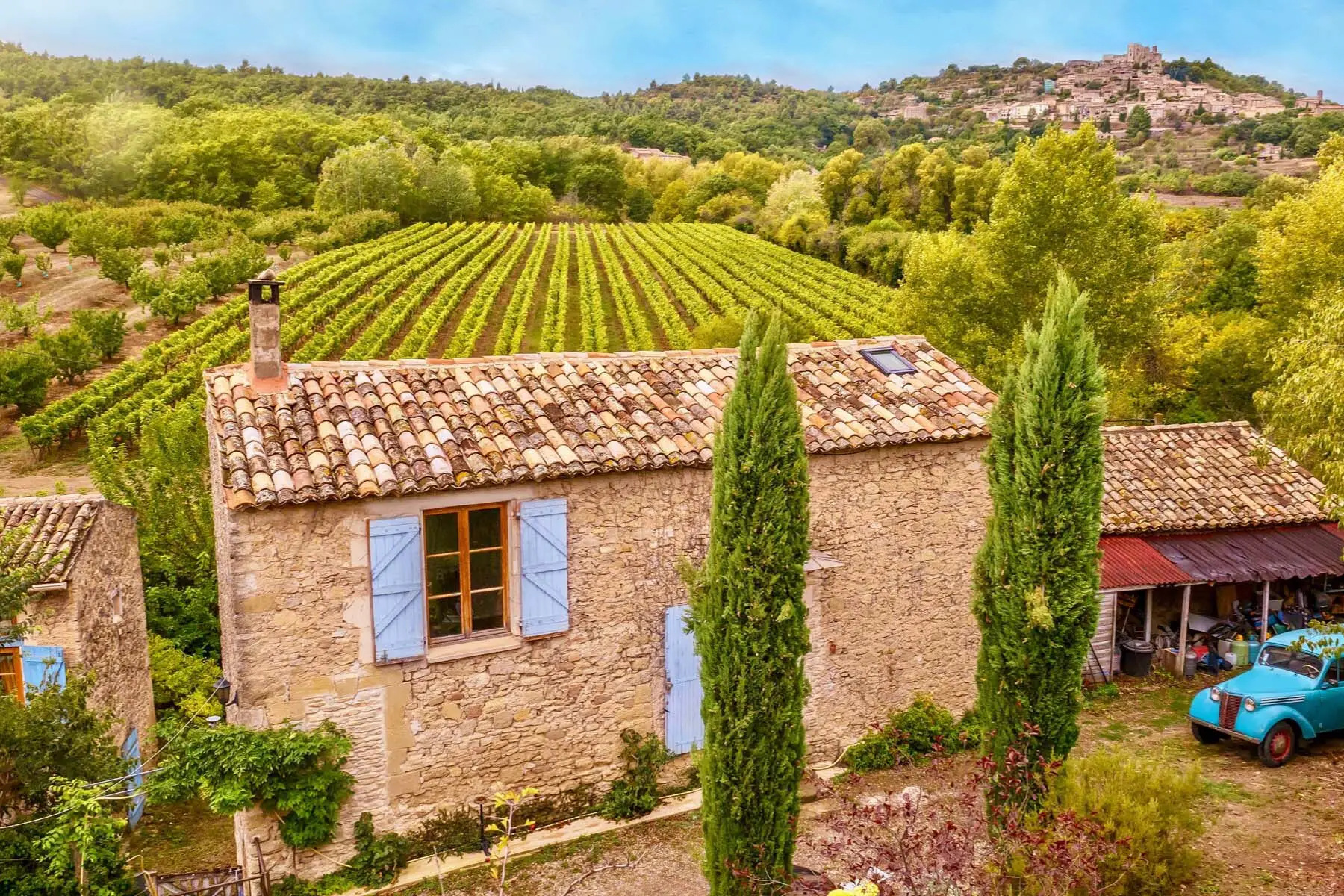
If you’re moving into a brand new property, or one with no existing electricity connection, you’ll need to set one up. To do this, you’ll need to contact Enedis, the French electricity distributor for the vast majority of the country. The cost of this will largely depend on the unique circumstances of your property. For more information on this process, speak to Enedis and your local town hall.
Paying your bills
When it comes to paying your French utility bills, you’ll typically receive a bill every two months. However, depending on your supplier, you may have to pay on a monthly basis. These payments can be made via bank transfer or by check, but the most common method is by automatically monthly collections (direct debit). Meter readings are taken either once or twice a year to check on your usage.
French utility companies generally break down their bills into three charges. The first charge is your subscription cost (abonnement) which will relate to the tariff you’ve signed up for. Depending on your tariff, you may then have a usage charge, based on your actual usage. You will then have a further charge for local fees and taxes. You’ll typically need to pay all these charges at once.
Changing energy supplier in France
Due to the historic nature of the French energy market, many locals aren’t even aware that changing energy supplier is an option. However, unlike in other European countries, changing providers in France is surprisingly straightforward. Making this switch could end up saving you hundreds of euros, so it’s well worth considering changing suppliers.
To make the change, all you have to do is simply find the right tariff for you and contact your new supplier. They will then take care of arranging the switch with your previous provider. You won’t experience a loss of power and you won’t face any cancellation fees or charges. These are prohibited by French law.
Good to know: if you sign up for a new provider following a sweet-talking phone or door-to-door sales call, you have 14 days to change your mind and retract the new contract.
Making a complaint about a French energy company
If you have a question or complaint about any meter readings or energy bills, you should contact your provider as soon as possible. This will give your supplier plenty of time to address the issue. You’ll find the contact details for their customer service department on their website.
Should you have a complaint about your energy provider itself, you can get in touch with France’s energy ombudsman, Le médiateur national de l’énergie. You can do this if your initial complaint has not been resolved within two months. On their website, you’ll be able to file complaints. France’s energy market is regulated by the CRE (Commission de Régulation de l’Énergie). Their website provides more information about French energy and the industry as a whole.
French voltage and power plugs
Whether you’re relocating to France or simply traveling through, it’s a good idea to know what to expect when it comes to plugging in your appliances. The standard French electricity voltage is between 220V and 240V, the typical voltage for much of Europe. However, this is significantly higher than in many countries, including the United States. You should, therefore, check your appliances can handle the local French voltage before plugging them in to avoid any issues.
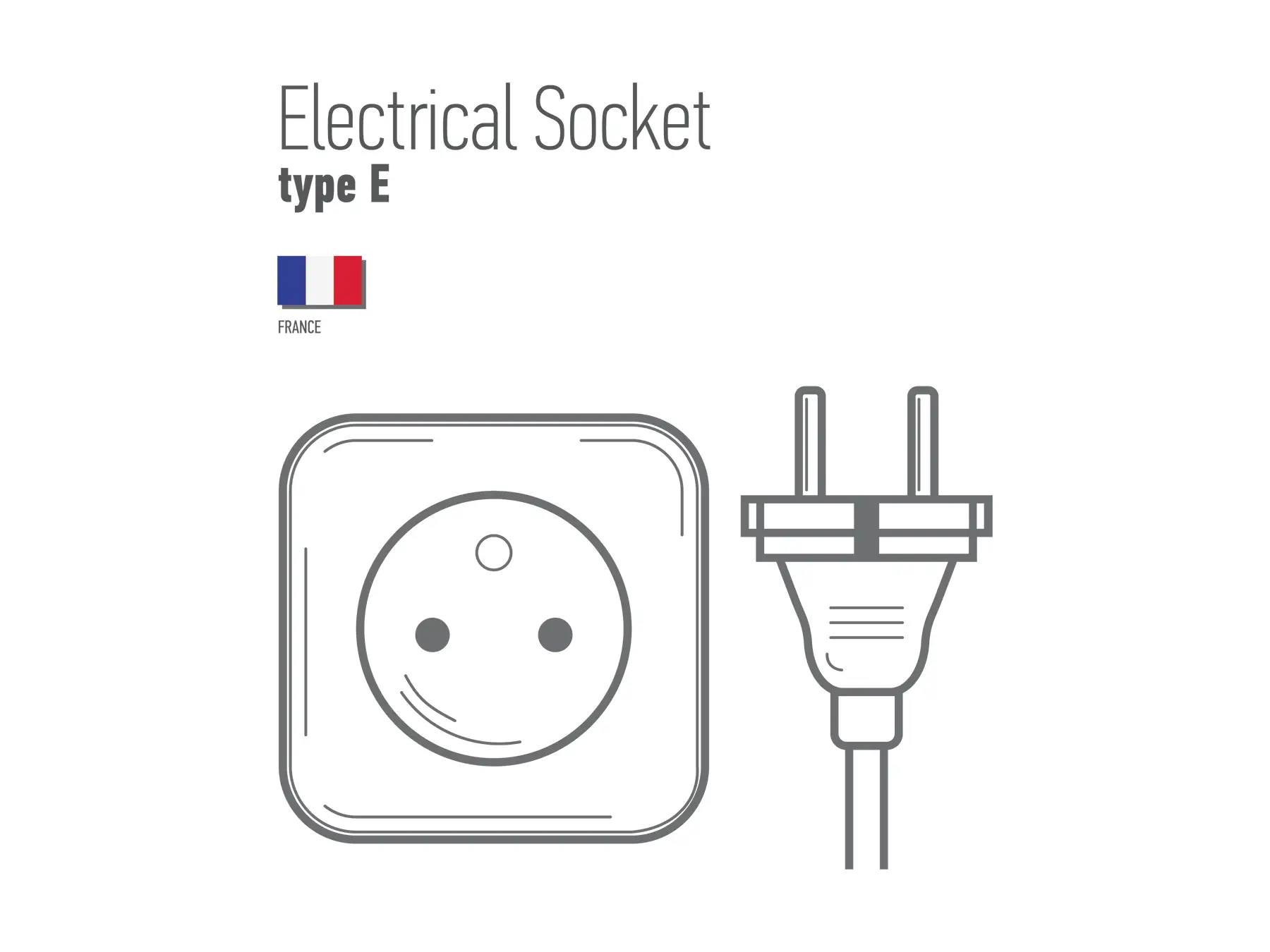
French plugs are atypical as they include both two prongs and a receptacle, unlike plugs in most other countries that have just prongs. That said, you’ll still find plenty of typical European plug sockets in France. You should also be able to plug in appliances from other countries with the standard European socket. However, those coming from the UK, the US, or any other country with different plug types will need to buy an adaptor.
Power cuts in France
Generally speaking, power cuts aren’t common in France. However, as in any other country, they do happen from time to time. If you experience an outage, check if any of your neighbors have power. If not, you can contact Edenis, the operator of the French electricity network.
However, if it’s just your home without power, you should check your fuse box to see if a fuse has tripped or blown. You might be able to fix the issue yourself. If not, you’ll need to contact your French energy provider. Should you need to carry out electrical repairs, it’s important to hire a contractor who is registered with the Chambre de Métiers or the Chambre de Commerce. You can find professional help via an online search or a platform such as TaskRabbit.
Water supply in France
Water in France is generally decent quality and provided at a local level by your local commune or, in some rural areas, a collection of communes. These local authorities then sign contracts with larger water providers. However, you will likely only ever have to deal with your local provider. To find out who the local water provider is, you should contact your nearest town hall (mairie).
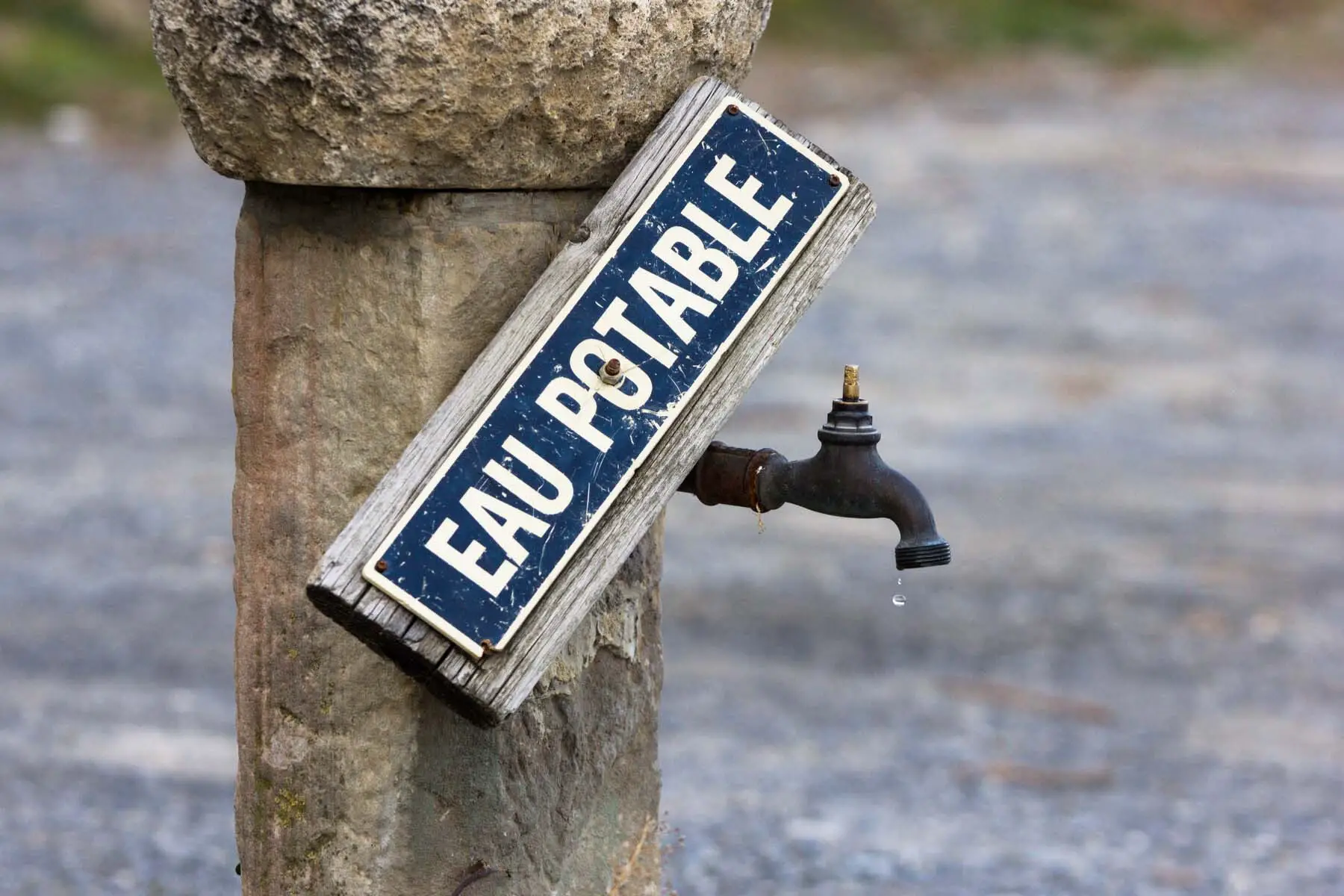
When moving into a new home, you’ll need to set up an account with your local water provider. The only exception to this is if you’re living in an apartment building, as many shared buildings have a single account and share costs. Speak to your landlord or tenants association to find out how it works in your building.
If you’re moving into a house, you’ll need to contact the local water provider and set up an account. To do this, you’ll likely need the following information:
- Proof of identity (passport, residence card)
- Proof of address
- French bank account details (if setting up automatic payment)
- Details of the previous occupant (if possible)
Paying your water bill
Your French water bill is calculated by the number of cubic meters of water you consume. Rates across the country can vary significantly and can be expensive in certain areas. Expect to receive a bill either once or twice a year.
French tap water
You’ll see plenty of locals stocking up on bottled water at the nearest French supermarkets, however, you don’t need to follow suit. Domestic water supplies in French are potable and many opt for bottled water only for reasons of personal preference.
The hardness of tap water varies significantly across the country. In some areas, including those north of Paris and around the southeastern corner, you’ll typically find hard tap water. In other areas, such as Britany and in the center of the country, tap water is much softer.
Useful resources
- Le médiateur national de l’énergie: French national mediator
- CRE (Commission de Régulation de l’Énergie): French energy regulator




